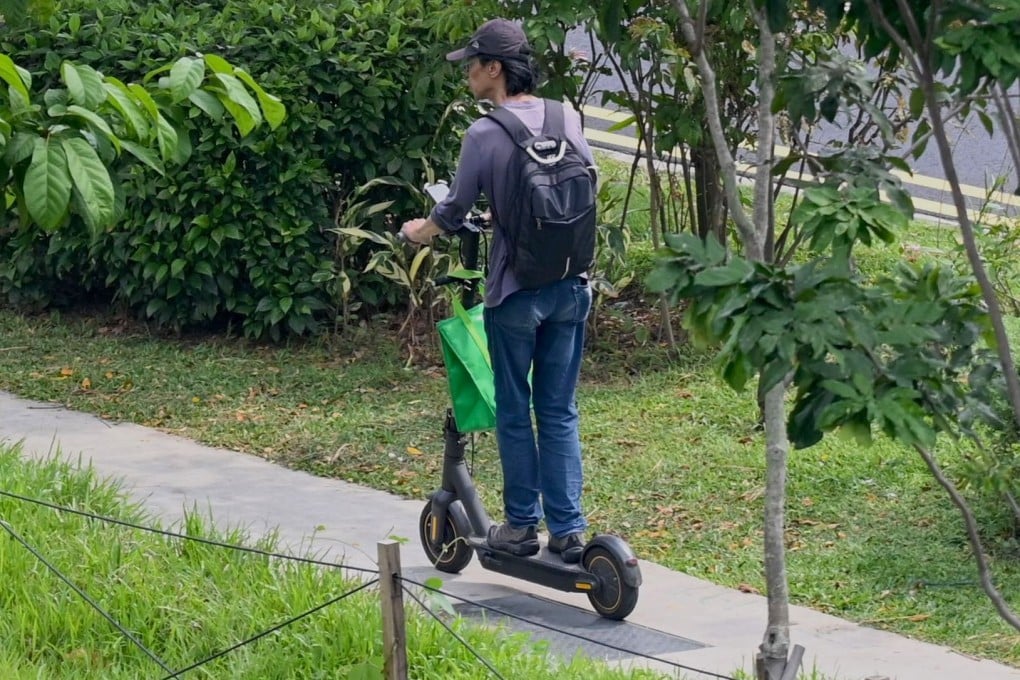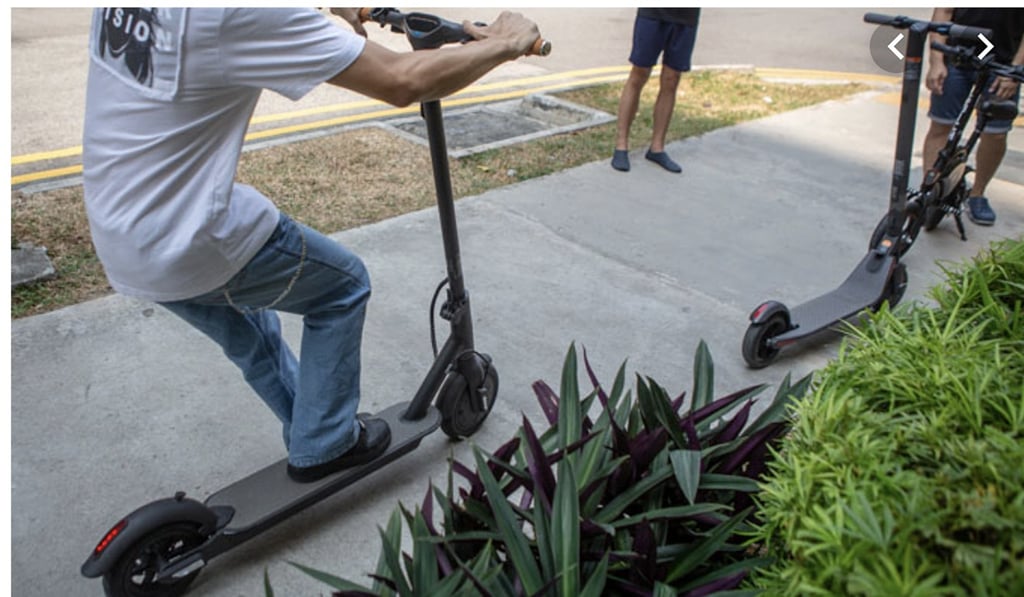Singapore’s e-scooter footpath ban puts brakes on food delivery riders’ earnings
- Singapore has banned all electric scooters from footpaths, following a rise in accidents involving personal mobility devices
- But this means many food delivery riders who invested in the devices are now out of pocket

Security officer Abdul Haleem Mohd scrimped on his expenses last month so he could buy an electric scooter and become a food delivery rider. He wanted more flexible working hours to care for his elderly mother, who has dementia.
“The ban was very disappointing. I have been thinking of moving [to food delivery] full-time to take care of mother,” said the 37-year-old.
Besides e-scooter retailers, food delivery riders who relied the devices were caught off guard by the ban, which the government maintained was justified following the rise in accidents and the number of offenders using machines that did not comply with the safety standards it imposed.

Hundreds of riders have since descended on weekly constituency meetings chaired by their members of parliament to air their grievances, pointing out they were making an honest living but had been made victims of the behaviour of a few black sheep.
The uproar came despite measures to help riders defray the cost of switching to other types of personal mobility devices, including bicycles and electric bikes.
